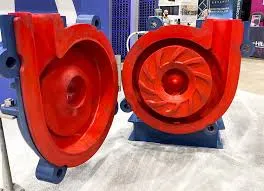Mongolian
- Afrikaans
- Albanian
- Amharic
- Arabic
- Armenian
- Azerbaijani
- Basque
- Belarusian
- Bengali
- Bosnian
- Bulgarian
- Catalan
- Cebuano
- Corsican
- Croatian
- Czech
- Danish
- Dutch
- English
- Esperanto
- Estonian
- Finnish
- French
- Frisian
- Galician
- Georgian
- German
- Greek
- Gujarati
- Haitian Creole
- hausa
- hawaiian
- Hebrew
- Hindi
- Miao
- Hungarian
- Icelandic
- igbo
- Indonesian
- irish
- Italian
- Japanese
- Javanese
- Kannada
- kazakh
- Khmer
- Rwandese
- Korean
- Kurdish
- Kyrgyz
- Lao
- Latin
- Latvian
- Lithuanian
- Luxembourgish
- Macedonian
- Malgashi
- Malay
- Malayalam
- Maltese
- Maori
- Marathi
- Mongolian
- Myanmar
- Nepali
- Norwegian
- Norwegian
- Occitan
- Pashto
- Persian
- Polish
- Portuguese
- Punjabi
- Romanian
- Russian
- Samoan
- Scottish Gaelic
- Serbian
- Sesotho
- Shona
- Sindhi
- Sinhala
- Slovak
- Slovenian
- Somali
- Spanish
- Sundanese
- Swahili
- Swedish
- Tagalog
- Tajik
- Tamil
- Tatar
- Telugu
- Thai
- Turkish
- Turkmen
- Ukrainian
- Urdu
- Uighur
- Uzbek
- Vietnamese
- Welsh
- Bantu
- Yiddish
- Yoruba
- Zulu
Telephone: +86 13120555503
Email: frank@cypump.com
11-р сар . 06, 2024 21:57 Back to list
sewer pumps residential
Understanding Residential Sewer Pumps A Homeowner's Guide
When it comes to maintaining a comfortable and functional home, an often-overlooked element is the sewer system. For homeowners, ensuring effective waste management is crucial, and that’s where residential sewer pumps come into play. These pumps serve as vital components in homes, especially those situated in low-lying areas or where gravity drainage isn't feasible.
What Are Sewer Pumps?
Sewer pumps are specialized devices designed to move wastewater from your home into the municipal sewer system or a septic tank. Unlike regular sump pumps, which handle flood water, sewer pumps deal exclusively with sewage materials, including solids and liquids. They are typically activated when wastewater accumulates in a sump pit, directing the flow of sewage away from your property and preventing backups and overflows.
Why Do You Need a Sewer Pump?
Many homes rely on gravity to move wastewater, but if your property is located below the sewer line, a sewer pump becomes essential. Inadequate drainage can lead to various issues, from unpleasant odors to significant damage to your plumbing system. A well-functioning sewer pump ensures that waste is efficiently transported, minimizing the risk of backups that can necessitate costly repairs.
Types of Residential Sewer Pumps
sewer pumps residential

There are two primary types of sewer pumps homeowners should be familiar with submersible and pedestal pumps.
1. Submersible Pumps These pumps are designed to be submerged in the sump pit. They are highly efficient and can handle a mix of water and solid waste. Submersible pumps are generally quieter and take up less space, making them a popular choice for residential applications.
2. Pedestal Pumps Positioned above the sump pit, pedestal pumps utilize a long shaft to connect to the impeller, which churns up the waste below. While they tend to be louder than submersible pumps, they are easier to service since they are accessible without removing them from the sump pit.
Maintenance Considerations
Regular maintenance of your sewer pump is crucial for ensuring its longevity and performance. Homeowners should routinely inspect their pumps, check for clogs, and ensure that the power supply is stable. Additionally, keeping the area around the pump clean and free of debris will help prevent operational issues.
Conclusion
Investing in a reliable residential sewer pump is essential for maintaining a healthy and functional home environment. By understanding the types of pumps available and committing to their regular maintenance, homeowners can avoid expensive repairs and keep their sewage systems running smoothly. Whether you’re building a new home or upgrading an existing one, don’t underestimate the importance of choosing the right sewer pump for your needs.
-
High-Performance Air Pumps for Sand & Gravel | Efficient Transport
NewsAug.03,2025
-
ISG Series Vertical Pipeline Pump - Chi Yuan Pumps Co., LTD.|Energy Efficiency, Corrosion Resistance
NewsAug.03,2025
-
ISG Series Pipeline Pump - Chi Yuan Pumps | Energy Efficiency&Compact Design
NewsAug.03,2025
-
ISG Series Vertical Pipeline Pump - Chi Yuan Pumps Co., LTD.|High Efficiency, Low Noise, Durable
NewsAug.02,2025
-
ISG Series Vertical Pipeline Pump - Chi Yuan Pumps | High Efficiency, Low Noise
NewsAug.02,2025
-
ISG Series Vertical Pipeline Pump- Chi Yuan Pumps Co., LTD.|High Efficiency&Compact Design
NewsAug.02,2025










